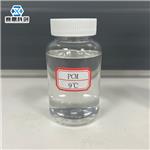Pentadecane is a linear alkane with high latent heat (~168 kJ/kg) and low melting point. These properties make it an ideal candidate as a phase change material (PCM) for cooling applications.
Pentadecane is produced by isolation of n-paraffins
(C9–C17) from kerosene and gas oil fractions of crude oil
by selective adsorption and fractional distillation. It is
used in organic synthesis and as solvent.
n-Pentadecane is used in preparation method of Graphene/Alkane composite coating for Aluminum Alloy plate belt.
ChEBI: A straight-chain alkane with 15 carbon atoms. It is a component of volatile oils isolated from plants species like Scandix balansae.
Saturated aliphatic hydrocarbons, such as N-PENTADECANE, may be incompatible with strong oxidizing agents like nitric acid. Charring of the hydrocarbon may occur followed by ignition of unreacted hydrocarbon and other nearby combustibles. In other settings, aliphatic saturated hydrocarbons are mostly unreactive. They are not affected by aqueous solutions of acids, alkalis, most oxidizing agents, and most reducing agents. When heated sufficiently or when ignited in the presence of air, oxygen or strong oxidizing agents, they burn exothermically to produce carbon dioxide and water.



